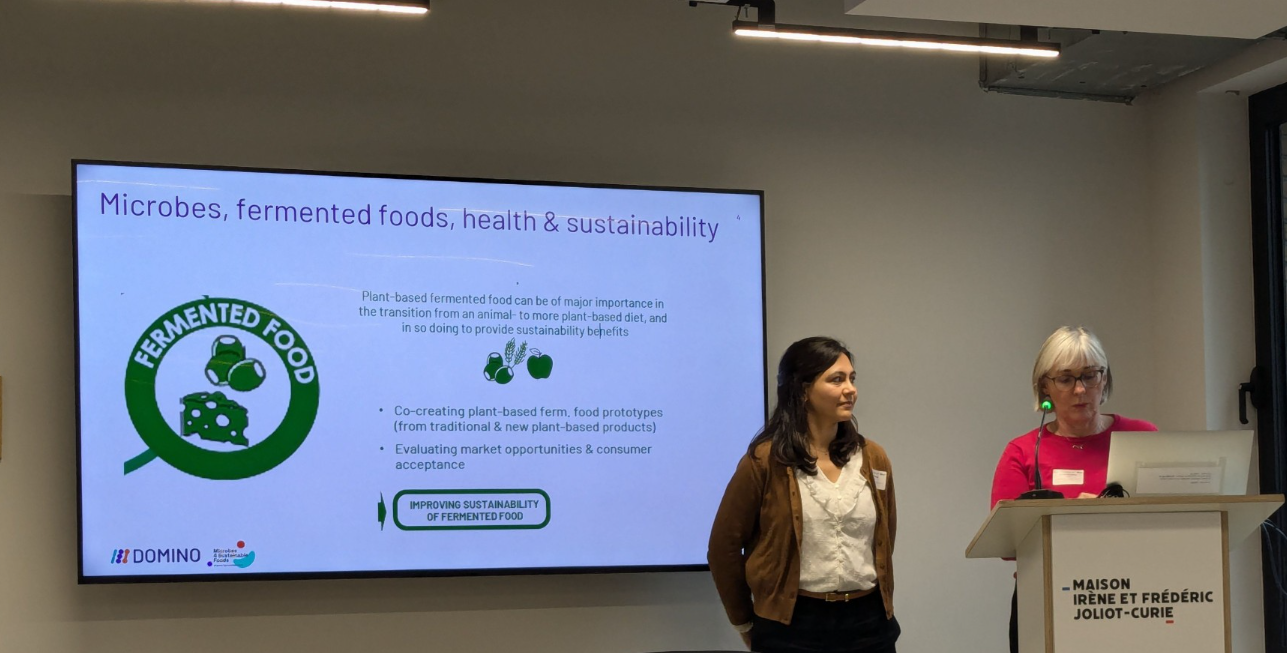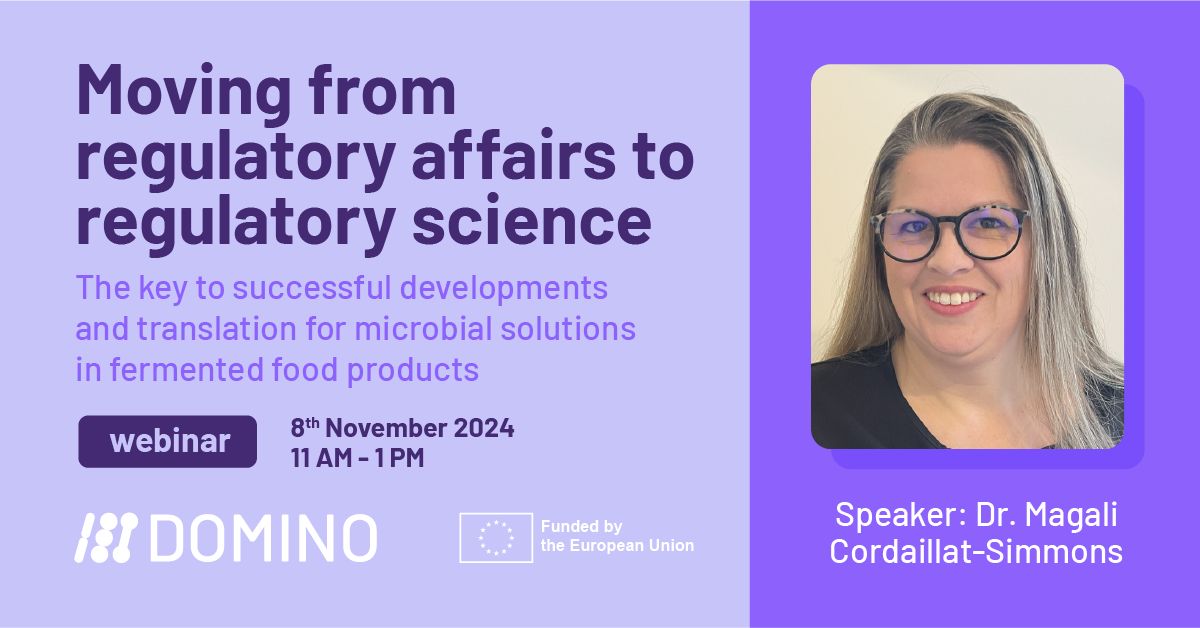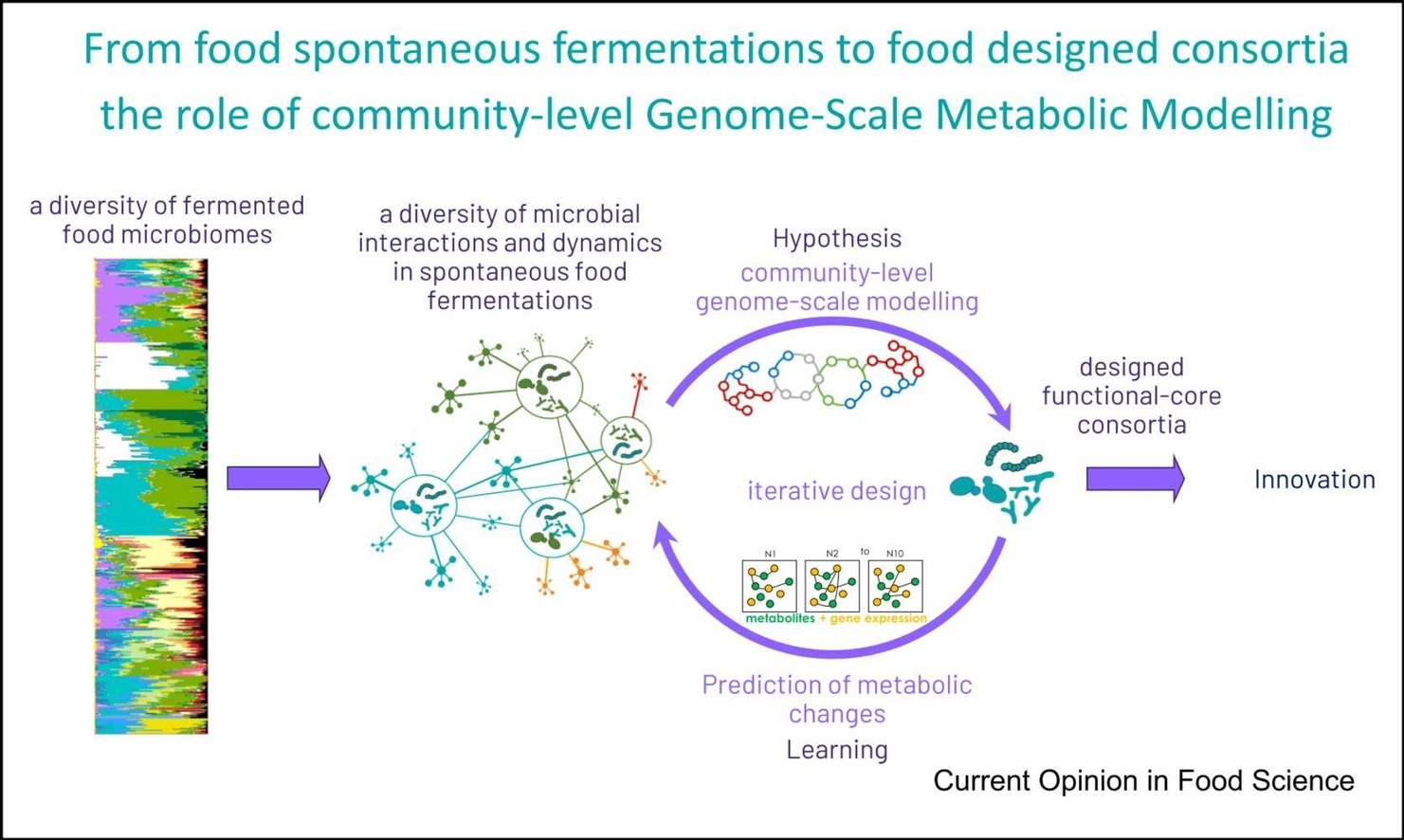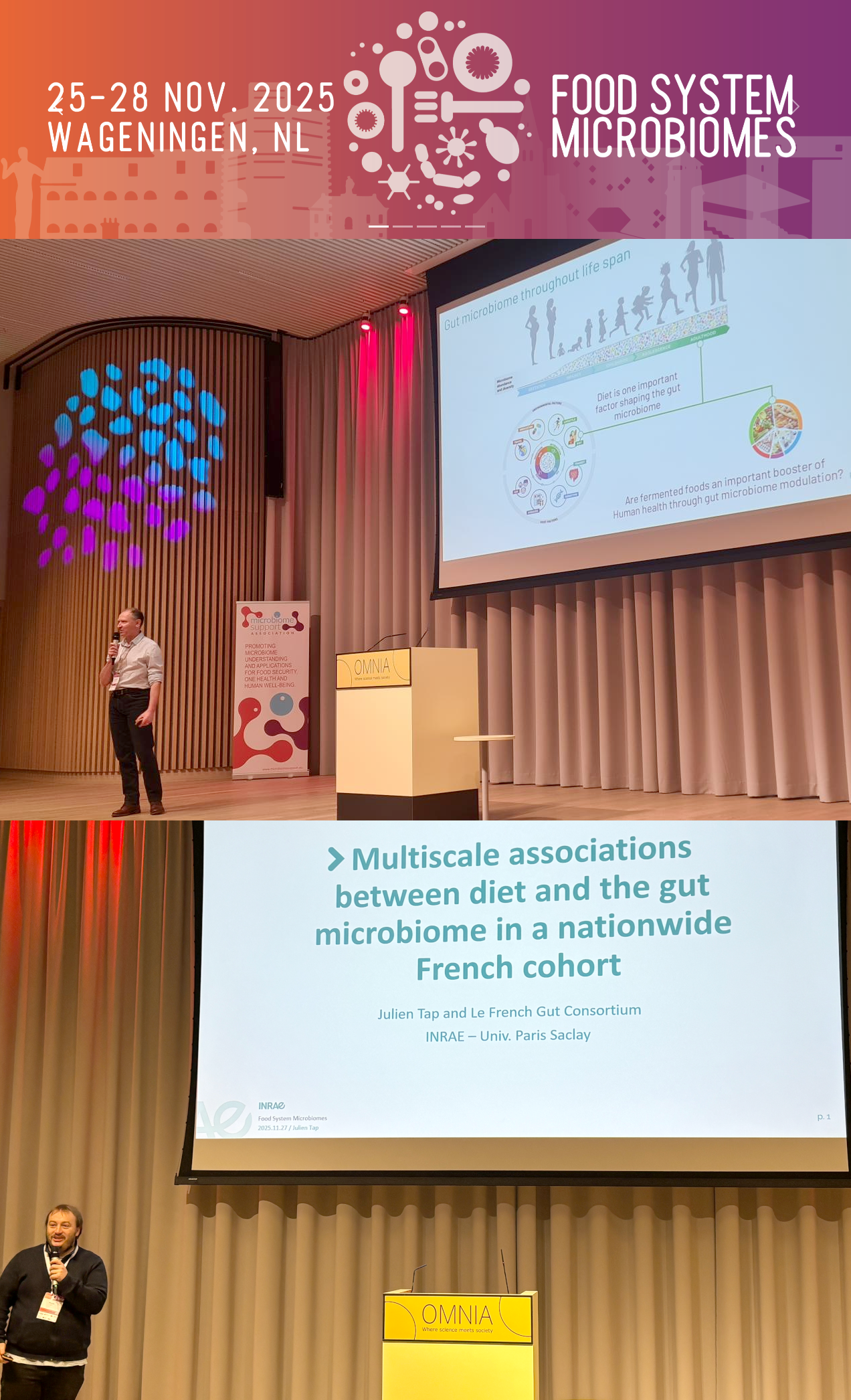Published: Nov 19, 2024 by FME Lab
The DOMINO project is at the forefront of connecting microbiome science, food systems, and health in Europe. Recent activities highlight how DOMINO is driving innovation and fostering collaboration:
Living Labs: At a Brussels event hosted by Ferments du Futur and partners, DOMINO showcased how Living Labs bring together researchers, producers, regulators, and consumers. These labs explore fermented foods like legumes in France and water kefir in Ireland, uncovering knowledge gaps and emphasizing the importance of consumer feedback in food innovation.

Stakeholder Forum: DOMINO launched its Stakeholder Forum with a webinar by Dr. Magali Cordaillat-Simmons, focusing on regulatory science for microbiomes. This platform ensures DOMINO’s research aligns with societal needs, promoting open dialogue on fermented foods and microbiome advances.

DOMINO is animating food microbiome science by combining interdisciplinary research, consumer engagement, and cross-sector collaboration, driving Europe toward healthier, more sustainable food systems.


